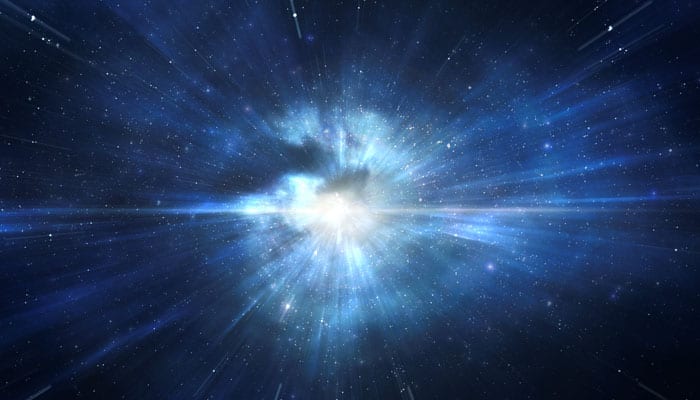Washington: Even as the debate about the origins of life and the Universe continues creating puzzles among humankind, a new theory now suggests that Big Bang never happened and our cosmos may have no beginning and no end.
The theory by physicists, including one of Indian-origin, applies quantum correction terms to Einstein's theory of general relativity to suggest that the universe never expanded nor shrunk.
The new theory may also explain the cause of dark matter and dark energy.
The widely accepted age of the universe, as estimated by general relativity, is 13.8 billion years. In the beginning, everything in existence is thought to have occupied a single infinitely dense point, or singularity.
Only after this point began to expand in a “Big Bang” did the universe officially begin.
Although the Big Bang singularity arises directly and unavoidably from the mathematics of general relativity, some scientists see it as problematic because the math can explain only what happened immediately after - not at or before - the singularity, 'Phys.Org' reported.
Ahmed Farag Ali at Benha University and the Zewail City of Science and Technology, in Egypt and Saurya Das at the University of Lethbridge in Canada explained in a paper called “Cosmology from quantum potential” that the Big Bang singularity can be resolved by their new model in which the universe has no beginning and no end.
The new theory is based on ideas by theoretical physicist David Bohm, who is also known for his contributions to the philosophy of physics.
Starting in the 1950s, Bohm explored replacing classical geodesics (the shortest path between two points on a curved surface) with quantum trajectories.
In the study, Ali and Das applied these Bohmian trajectories to an equation developed in the 1950s by physicist Amal Kumar Raychaudhuri at Presidency University in Kolkata.
In addition to not predicting a Big Bang singularity, the new model does not predict a “big crunch” singularity, either.
The researchers explained in their paper that the model avoids singularities because of a key difference between classical geodesics and Bohmian trajectories.
They also explain that the quantum corrections can be thought of as a cosmological constant term (without the need for dark energy) and a radiation term.
These terms keep the universe at a finite size, and therefore give it an infinite age.
Das and another collaborator, Rajat Bhaduri of McMaster University, Canada, have lent further credence to this model in a related paper.
The research was published in the journal Physics Letters B.
(With Agency inputs)
















